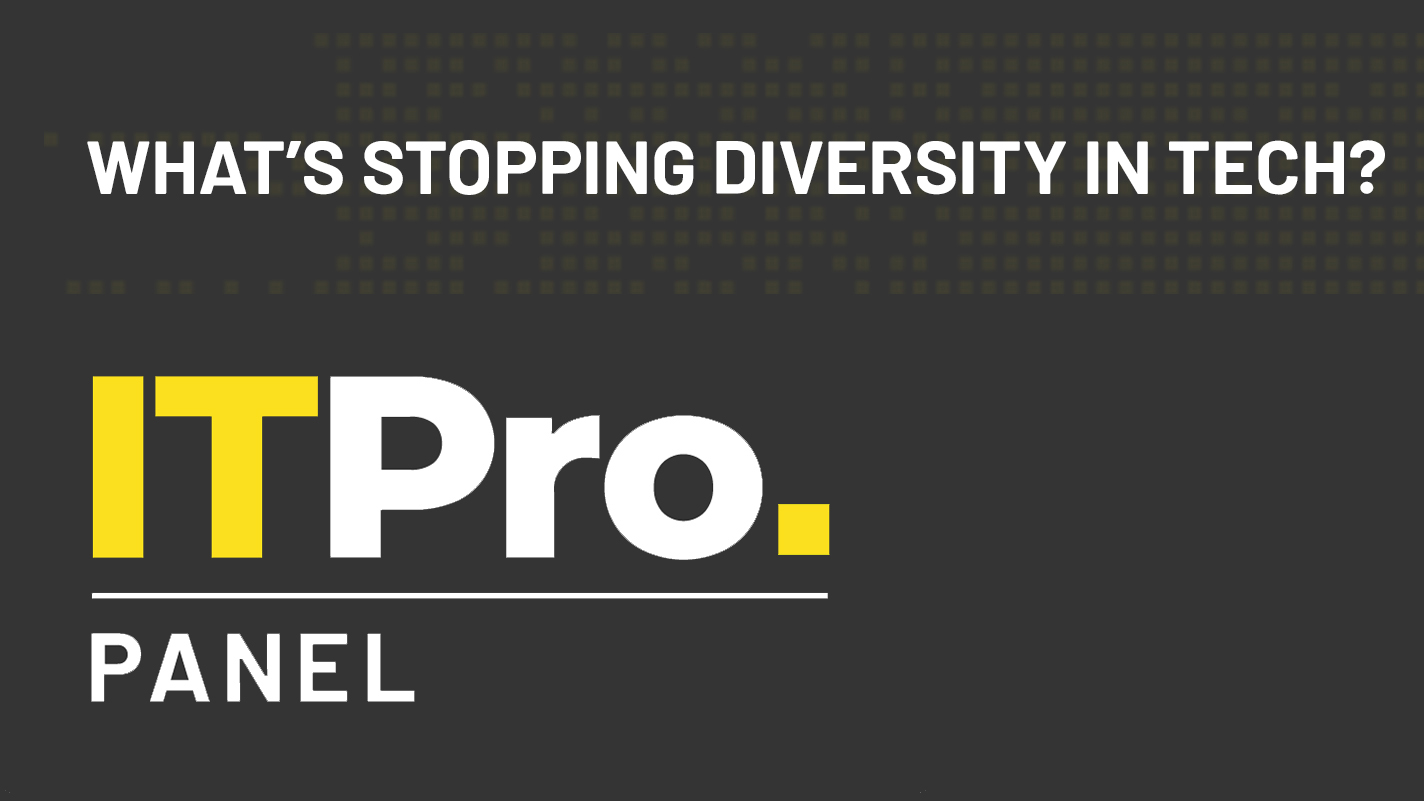In 2018 women in tech will value transparency above all else
The time for words and gestures is gone — now it's time for action


A shift in attitudes has been felt across almost every industry when it comes to gender equality in the workplace, and tech isn't immune, as 2018 sees female employees finally speaking up about the problems that have plagued them for decades. The idea that things need to change is now an inarguable fact, but how they do so is still very much up for debate.
From now on, and especially in the years during which these necessary changes take root, women will value transparency of pay, of hiring decisions and of how complaints are dealt with above anything else.
For many, the lack of accountability is a huge problem across the tech industry, with many companies failing to listen to their female employees as a result of having no clear rules or regulations that state they must foster and nurture diversity, not just pay it lip service.
Organisations such as the Tech Talent Charter, which established a series of pledges that aim to encourage greater diversity within the technology industry, are helping to fight back.
"Words are not enough, we need meaningful actions to drive change," George Brasher, managing director for HP UK and Ireland, and one of the founding signatories of the charter, tells IT Pro. "We have to work together as an industry to address the dire diversity imbalance within UK tech and we have to be accountable, setting ourselves goals and measurable targets."
Tara O'Sullivan, chief creative officer at Skillsoft, adds: "Let's face it, tech consists mainly of white males. People tend to hire people they recognise and identify with. This unconscious bias can foster negative attitudes and lead to damaging stereotypical behaviours.
"Men themselves have a very important role to play in narrowing the tech gender gap. Invariably they are in the seat of the interviewer and they need to be encouraged, trained and in some cases forced to create diverse teams. They need training in conscious and unconscious bias and need to be educated about the benefits of diversity -- both helping people change the way they think, and calling out unfair behaviour."
Get the ITPro daily newsletter
Sign up today and you will receive a free copy of our Future Focus 2025 report - the leading guidance on AI, cybersecurity and other IT challenges as per 700+ senior executives
What's your number?
According to a study by Hired, women in tech are paid 9% less on average than their male counterparts, which is equivalent to 5,000 a year. What's more, this figure is higher than for the USA (8%), Canada (7%) and Australia (5%), making the UK one of the most unfair places for women in tech to work.
As bad as the figures are for women in general, though, minority women are even more likely to be underpaid and passed over for promotions unfairly. The racial gap for black women in Silicon Valley, for example, was 5.35x the gender gap in 2014, according to a report by Ascend Leadership.
But behind-the-scenes decisions such as hiring and pay are just part of the issue, with the treatment of staff now also coming under a harsh spotlight as more and more horror stories emerge.
Former Kleiner Perkins employee Ellen Pao was one of now many women to speak out against the treatment she was subjected to, detailing events in her book Reset. Uber whistleblower Susan Fowler has also written about the dismissal she received when reporting misconduct at the company, but these two women are just the tip of the iceberg.
To tackle sexual harassment at work, Gartner's HR practice leader Brian Knopp believes a less passive approach is needed.
"Forward-thinking employers need to shift to an active listening approach," he said. "Rather than waiting for an incident to be reported and then responding, businesses should ensure that the appropriate training schemes are in place to educate employees on what constitutes sexual harassment."
He continues: "Issues such as pay transparency can be addressed by placing fairness at the heart of workplace culture. This is a concept that needs to be applied to all facets of the business, from recruiting and promotion to employee benefits, ensuring there is no room for bias or abuse. Change needs to be driven from the top, with business leaders tangibly and visibly demonstrating their commitment to the cultural value of fairness and equal treatment of all employees."
Where is change most likely to happen?
Interestingly, the pay discrepancy found by the Hired survey was highest in mid-sized companies with between 201-1000 employees. For these SMBs, the pay gap is almost double the 9% average at 17%. The study puts this down to a lack of regulation compared to large enterprise firms.
Amy Crimmens, head of community engagement at digital consultancy Red Badger, believes change will need to take root in startups first, which might not have the same systemic problems as those more established businesses (though gender can still be a barrier when attempting to gather funding).
She tells IT Pro: "If we want things to be more equal and diverse in the future, then startups have to play a key role... If you start with a commitment to diversity, then you're more likely to maintain it, whereas companies that grow without these principles are less likely to be able to change their ways once they're established."
Crimmens also believes a 'clean slate' approach can push things forward when looking at starting salaries, rather than basing decisions on those of previous companies.
"When we hire, we don't ask people what they're currently on but we ask what they are looking for," she continues. "If they want to share that information with us, it's up to them but it's not a question that they are asked to answer. This is designed to stop low pay perpetuating itself and carrying over from previous companies that may have had a gender pay gap."
Women still make up just 17% of the tech workforce, though, and in order to attract more female workers into companies desperate to fill their skills gaps, the industry must do better to be upfront, active and transparent at every level of the business.
The time for passivity and buzzwords is over, and women are thankfully demanding more.
Caroline has been writing about technology for more than a decade, switching between consumer smart home news and reviews and in-depth B2B industry coverage. In addition to her work for IT Pro and Cloud Pro, she has contributed to a number of titles including Expert Reviews, TechRadar, The Week and many more. She is currently the smart home editor across Future Publishing's homes titles.
You can get in touch with Caroline via email at caroline.preece@futurenet.com.
-
 Bigger salaries, more burnout: Is the CISO role in crisis?
Bigger salaries, more burnout: Is the CISO role in crisis?In-depth CISOs are more stressed than ever before – but why is this and what can be done?
By Kate O'Flaherty Published
-
 Cheap cyber crime kits can be bought on the dark web for less than $25
Cheap cyber crime kits can be bought on the dark web for less than $25News Research from NordVPN shows phishing kits are now widely available on the dark web and via messaging apps like Telegram, and are often selling for less than $25.
By Emma Woollacott Published
-
 It’s the end of the road for Women Who Code, following loss of “critical” funding
It’s the end of the road for Women Who Code, following loss of “critical” fundingNews The organization supporting women in the tech industry is being dissolved 13 years after it was founded
By Emma Woollacott Published
-
 Five common barriers holding back women in tech
Five common barriers holding back women in techWomen in tech still face significant challenges in the workplace
By Keri Allan Published
-
 Report: Brexit and COVID to blame for lack of diversity in tech
Report: Brexit and COVID to blame for lack of diversity in techNews One in two surveyed respondents cited the two events as key factors in the failure to improve diversity in leadership roles
By Sabina Weston Published
-
 Australia allocates $6.7 million to advance women in STEM initiatives
Australia allocates $6.7 million to advance women in STEM initiativesNews Women make up only 28% of the country's STEM workers
By Zach Marzouk Published
-
 IT Pro Panel: What’s stopping diversity in tech?
IT Pro Panel: What’s stopping diversity in tech?IT Pro Panel The need for more diversity is well established - but we still have a way to go
By Adam Shepherd Published
-
 AWS partners with NPower to boost jobs for women of color in tech
AWS partners with NPower to boost jobs for women of color in techNews Command Shift will find tech jobs for underserved group
By Danny Bradbury Published
-
 AWS and The Dream Collective aim to bring more women into tech
AWS and The Dream Collective aim to bring more women into techNews The SheDares learning program offers women expert advice on how to pursue a career in technology
By Praharsha Anand Published
-
 Why aren’t women heading more tech startups?
Why aren’t women heading more tech startups?In-depth Women are in incredibly short supply as founders of top tech firms. What’s going on, and can the situation change for the better?
By Sandra Vogel Published